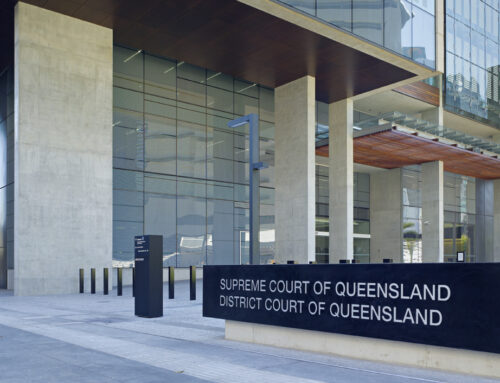Part 2: Joint Tenancy or Tenancy in Common?
To fully appreciate the various issues that could befall Bob and Carol on the one hand and Ted and Alice on the other, it is necessary to have some appreciation of the terms “Joint Tenants” and “Tenants in Common”.
Whenever real estate is held by more than one party it has to be declared in the transfer document registering their interest with the Department of Natural Resources and Mines how they hold the property between themselves and there are only ever two possibilities and they are:
- as Joint Tenants; or
- as Tenants in Common.
That declaration makes a world of difference in relation to the legal outcome and resolution of the issues discussed below.
“Joint Tenants” together own the entire interest in the property, but as individuals they own nothing. If one party dies, his or her share passes automatically to the surviving party, ie. if A and B own a property together and are registered on the title as joint tenants, then if A dies B will automatically become the sole owner even if A had made a Will in favour of some other party. On A’s death his or her interest in the property will not form part of his or her estate.
On the other hand if A and B own a property together and are registered on the title as tenants in common, then if A dies B will not automatically receive A’s share of the property. A’s share in that property does form part of his or her estate and will pass to the beneficiary nominated to receive it in A’s Will or if A has not made a Will, then it will go to those entitled to participate in A’s estate according to the Intestacy Rules contained in the Succession Act. Parties holding property as tenants in common may do so in different proportions usually determined by the respective capital contributions made towards the property’s acquisition.
For example, if A and B are business partners and together purchase a property for $700,000 of which A contributes $500,000 and B contributes $200,000 in that case they would be registered as tenants in common in the interest of 5/7 and 2/7 respectively. If in the absence of proper legal advice, despite those respective contributions, they were registered on the title as joint tenants and A was to suddenly die, then B would automatically become the sole owner of the whole property despite A having made a Will wherein he or she had left his or her interest to his or her spouse and children. In that case no part of the partnership property is included in A’s estate and B would receive a substantial windfall.
The above helps to explain why in the case of the Bob and Carol, Ted and Alice scenario they were registered on the title as Bob and Carol (as joint tenants inter se) and Ted and Alice (as joint tenants inter se) as tenants in common in the interests of 3/10 and 7/10 respectively (“inter se” means between themselves). Hence if Bob were to predecease Carol then Carol would automatically become the owner of Bob’s interest in the 3/10 share they had jointly held as tenants in common with Ted and Alice who between them held the remaining 7/10 share as joint tenants inter se. So that upon registration of Bob’s record of death the title to the property would be registered as follows:
- Ted and Alice (as joint tenants inter se) as tenants in common with Carol in the interests of 7/10 and 3/10 respectively.
Upon Carole’s death her 3/10 interest would go to the beneficiaries nominated in her Will.
So as you can see it is absolutely critical that the correct type of co-tenancy be selected when registering your interest in jointly owned real estate.
Having noted and understood the legal implications of a “joint tenancy” as opposed to a “tenancy in common” our next article will examine some of the issues that can spring from a co-ownership.
Disputes may arise over:
- whether to sell the house or property;
- whether to refinance;
- whether a party can be bought out;
- how to split income and costs associated with the property;
- mortgage repayments.
If you’d like to discuss any of the issues raised within this article please feel free to contact our team on 07 3284 9433 or email info@cookehutchinson.com.au.





